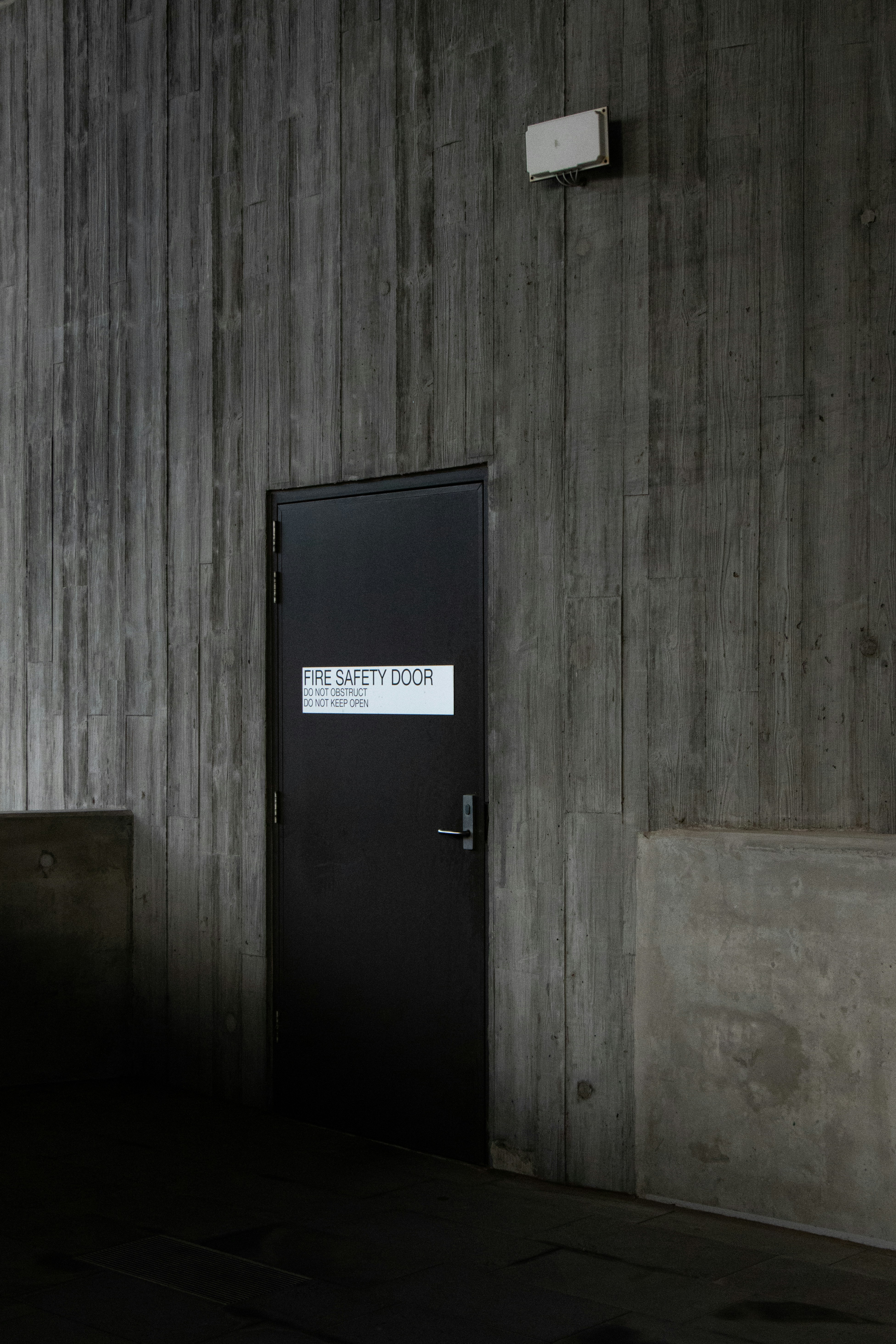
Introduction to Rental Compliance in London
In London, landlords are entrusted with the pivotal responsibility of ensuring that their rental properties meet a series of legal obligations designed to protect tenant safety and maintain property standards. Adhering to these regulations is crucial, as non-compliance can lead to significant financial penalties and legal ramifications. Therefore, understanding the requirements surrounding property safety in London is essential for all landlords.
One of the foundational aspects of rental compliance is the implementation of various safety certifications. These certifications serve as proof that a property has undergone necessary inspections and meets established safety standards. Among the key safety certifications required in London, the Fire Risk Assessment is critical for evaluating potential fire hazards and ensuring effective safety measures are in place. This assessment aids landlords in identifying risks and implementing appropriate precautions to safeguard tenant welfare.
Moreover, a Gas Safety Certificate is another essential element of rental compliance. Landlords must have their gas appliances and installations regularly inspected to confirm they are functioning safely and efficiently. This certification, typically renewed annually, not only protects tenants but also ensures compliance with national safety regulations concerning gas use.
Additionally, the Electrical Installation Condition Report (EICR) is a mandatory inspection that assesses the safety of electrical systems within a rental property. Conducting an EICR ensures that all electrical installations are safe and minimizes the risk of electrical hazards. Lastly, the Energy Performance Certificate (EPC) provides landlords and tenants with insight into the energy efficiency of a property, helping tenants make informed decisions while encouraging landlords to enhance their properties’ energy ratings for compliance and marketability.
In conclusion, understanding and fulfilling these legal obligations will not only ensure the safety of tenants but also protect landlords from potential liabilities, reaffirming the importance of commitment to rental compliance in London.
Understanding Fire Risk Assessment: Importance and Costs
Fire risk assessments are a critical component of property management in London, especially for landlords of rental properties. These assessments are designed to identify potential fire hazards within a property and to evaluate the safety measures currently in place. By conducting a thorough fire risk assessment, landlords can significantly mitigate the risk of fire incidents, thus ensuring the safety of their tenants and reducing liabilities associated with fire-related accidents. This proactive approach not only protects lives but also safeguards the property itself from potentially devastating damage.
The legal framework in the UK mandates that landlords must comply with the Regulatory Reform (Fire Safety) Order 2005, which underscores the importance of undertaking regular fire risk assessments. Compliance with this legislation helps landlords demonstrate due diligence and commitment to tenant safety. In addition to safeguarding tenants, having an up-to-date fire risk assessment can enhance a landlord’s reputation, attracting responsible tenants and ensuring the longevity of their investment.
In terms of costs, the price for a fire risk assessment in London can vary widely based on several factors. Generally, landlords can expect to pay between £200 and £600 for a comprehensive assessment. Factors influencing the cost include the property’s size, complexity, and the location within London. Larger properties or buildings with multiple units may incur higher fees due to the increased time and expertise required to assess the fire risks accurately. Furthermore, the choice of assessment provider can also impact pricing, as more experienced or certified professionals may charge a premium for their services.
In summary, investing in a fire risk assessment is essential for landlords in London. Not only does it ensure compliance with legal requirements, but it also contributes to tenant safety and property protection, ultimately making it a prudent financial decision.
Gas Safety Certificates: Ensuring Safe Gas Usage
Gas safety certificates are essential documents for landlords in London, serving to demonstrate compliance with legal obligations regarding the safety of gas appliances, installations, and flues within rental properties. The Gas Safety (Installation and Use) Regulations 1998 mandate that landlords must ensure annual gas safety checks are conducted by a qualified Gas Safe registered engineer. This requirement is fundamental in safeguarding tenants from potential hazards such as gas leaks, carbon monoxide poisoning, and fire risks associated with malfunctioning gas equipment.
These annual checks must be carried out each year, which involves a comprehensive inspection of all gas appliances, pipes, and flues. A valid gas safety certificate is crucial, as it ensures that each appliance has been tested for safety and is functioning correctly. Landlords must provide their tenants with a copy of this certificate within 28 days of the inspection to fulfill their legal duties. Failure to obtain or renew these certificates can lead to severe penalties, including fines and potential legal action, which highlights the importance of compliance.
The cost of acquiring a gas safety certificate in London can vary significantly depending on factors such as the size of the property and the number of gas appliances present. On average, landlords may expect to pay between £60 to £120 for a gas safety check; however, larger properties or those with more complex systems may incur higher costs. It is advisable for landlords to obtain quotes from multiple Gas Safe registered engineers to ensure they are receiving competitive pricing while also verifying the expertise and reliability of the service provider.
Understanding EICR (Electrical Installation Condition Report) Costs
The Electrical Installation Condition Report (EICR) is a crucial assessment for landlords in London, ensuring the safety of electrical installations within rental properties. An EICR examines the condition of the electrical systems, identifying any potential hazards and ensuring compliance with the current regulations. Obtaining an EICR is not just a legal requirement but also a vital step in protecting tenants and maintaining property integrity.
The cost of obtaining an EICR can vary significantly depending on several factors. One of the primary influences is the size of the property. Larger properties typically have more extensive electrical installations, requiring a more thorough inspection, which can lead to higher costs. Conversely, smaller flats or units may incur lower fees due to less complex electrical systems.
Another critical factor is the age of the property. Older buildings may feature outdated wiring and installations, which might necessitate additional work to bring them up to current safety standards. This can increase the overall cost of the EICR. Furthermore, properties that have undergone significant renovations will require a comprehensive assessment of new installations, which can also impact the price.
Existing electrical installation conditions play a significant role in determining EICR costs. Properties with pre-existing issues, such as faulty wiring or devices that do not comply with safety regulations, may require remedial work before a satisfactory report can be issued. This additional work can lead to increased expenses for landlords but is essential for ensuring tenant safety and compliance.
In London, average prices for EICR assessments range from £150 to £300, depending on the factors mentioned earlier. Investing in an EICR is a crucial responsibility for landlords, promoting the safety and well-being of tenants while also preserving the value of their property.
Energy Performance Certificates: What Landlords Need to Know
An Energy Performance Certificate (EPC) is an essential document for landlords in London, as it provides a rating of a property’s energy efficiency. The EPC scale ranges from A (most efficient) to G (least efficient). The certificate is crucial for those renting out properties, as it not only informs potential tenants about energy efficiency but also serves as a legal requirement under the Energy Efficiency (Private Rented Property) (England and Wales) Regulations 2015.
Landlords must ensure that their properties have a minimum EPC rating of E before renting them out. Failure to comply with this regulation can result in penalties, including fines of up to £5,000. This underscores the importance of obtaining and maintaining an Energy Performance Certificate for all rental properties, as it directly affects both compliance and potential income from rentals.
The costs for obtaining an EPC can vary significantly based on several factors, including the property type, its age, and the geographical location within London. On average, landlords can expect to pay between £60 and £120 for an EPC, but these costs may increase for larger or more complex properties. In some instances, additional expenses may arise if the property requires improvements or retrofitting to enhance energy efficiency in order to achieve the desired EPC rating.
Benefits of securing an EPC extend beyond compliance. Energy-efficient properties have been shown to attract tenants more effectively, resulting in quicker occupancy rates and potentially higher rents. Moreover, improved energy efficiency not only benefits tenants through reduced energy bills but also aligns with broader environmental goals. Therefore, it is in a landlord’s best interest to prioritize energy performance in their rental properties, ensuring compliance and enhancing their marketability.
Comparative Cost Analysis for Landlords in London
Understanding the financial implications of property management in London is crucial for landlords. As property owners must comply with various safety regulations, it is essential to compare the costs associated with fire risk assessments, gas safety certificates, Electrical Installation Condition Reports (EICR), and Energy Performance Certificates (EPC). The following analysis provides an overview of the average costs involved with each of these essential services.
Fire risk assessments are a legal requirement for residential properties. The cost typically ranges from £200 to £500, depending on the property size and complexity. This cost covers the evaluation of potential fire hazards and the formulation of strategies to mitigate risks, ensuring that landlords comply with fire safety regulations.
Gas safety certificates, required annually for any property with gas appliances, usually fall within the range of £70 to £120. This expense involves a qualified gas engineer conducting thorough checks to ensure that all installations adhere to safety standards outlined by the Health and Safety Executive.
Next, the EICR is critical for ensuring the safety of electrical installations. Typically, the cost ranges from £150 to £400, depending on the property’s scale and the extent of electrical systems in place. This report is essential for detecting any potential electrical hazards and ensuring that the property remains compliant with the latest safety regulations.
Finally, Energy Performance Certificates (EPC) are necessary for landlords who wish to rent out or sell their properties. The prices for EPC assessments generally vary from £60 to £120. This certificate highlights the energy efficiency of a building and provides recommendations for improvements, relevant for keeping up standards as energy regulations tighten over time.
In summary, while each compliance cost may vary, it is vital for landlords to budget for fire safety, gas safety, electrical condition, and energy performance assessments to ensure both legal compliance and the safety of their tenants.
Choosing the Right Service Provider
When it comes to securing essential safety certificates, such as Fire Risk Assessment, Gas Safety Certificate, EICR, and Energy Performance Certificate, selecting the appropriate service provider is crucial for landlords in London. The process can significantly impact not only compliance with legal requirements but also the overall safety and well-being of tenants. Therefore, several key factors must be evaluated when making this decision.
Firstly, reputation plays a pivotal role in identifying a reliable service provider. Conducting thorough research on potential companies is necessary. Sources might include online platforms, industry-specific forums, and local landlord associations. Pay attention to feedback from previous clients, as this can offer valuable insight into the provider’s reliability and service quality. An established service provider with a solid reputation is more likely to adhere to industry standards and regulations.
Experience is another essential factor to consider. A company that has been in the business for an extended period usually possesses a deeper understanding of the complexities involved in obtaining safety certificates. Moreover, experienced providers can navigate common pitfalls effectively, ensuring timely completion of required services. Check the provider’s track record in delivering similar services, particularly in your area, as this can influence their ability to comply swiftly with local regulations.
Customer reviews should also be a part of the decision-making process. Platforms such as Google Reviews or Trustpilot can give you an overview of previous clients’ experiences. These reviews often highlight the level of professionalism, customer service, and adherence to schedules, which are vital for landlords aiming for a smooth process. Finally, consider the cost-effectiveness of the services offered. While it is important to find a competitively priced option, remember that the cheapest service is not always the best choice. Balancing cost with reputation, experience, and customer satisfaction is key to making an informed decision.
Avoiding Common Pitfalls and Cost Overruns
For landlords in London, navigating the financial landscape associated with compliance certifications such as Fire Risk Assessments, Gas Safety Certificates, EICRs, and Energy Performance Certificates can be daunting. One of the pivotal aspects to ensure adherence to regulations while minimizing expenses is budgeting accurately. Common mistakes often lead to cost overruns that could otherwise be avoided with diligent planning and management.
Firstly, it is crucial to obtain multiple quotes from certified professionals for each compliance certification you require. This process not only provides clarity on potential costs but also enables landlords to identify unnecessary expenses or inflated pricing. Some landlords may underestimate the costs involved, assuming that a single quote is sufficient. Understanding the market and getting several perspectives can help in making informed decisions about which professionals to hire.
Additionally, comprehending your contractual obligations is essential to prevent unforeseen costs that arise from scope creep or misunderstandings with contractors. When engaging professionals for compliance assessments, ensure that all services included in the contract are clearly defined. Ambiguities may lead to additional charges for services that may seem outside the initial agreement but are necessary for compliance completion.
Timelines are another crucial factor that landlords must manage effectively. Delayed completion of compliance certifications often incurs additional costs due to fines or the potential loss of rental income. Therefore, creating a realistic timeline that includes buffer periods for unexpected delays can help mitigate potential financial losses. It is advisable to schedule assessments and necessary repairs during periods when property vacancy is low, minimizing the impact on income.
Incorporating these strategic approaches will help landlords budget more effectively, ensuring compliance without incurring excessive expenses. By being proactive in understanding potential pitfalls, landlords can navigate the compliance certification landscape with greater confidence and less financial strain.
Conclusion and Next Steps for Landlords
Understanding the financial implications of safety certifications and regulatory compliance is paramount for landlords in London. As property owners, landlords bear the responsibility of ensuring their properties meet safety standards that protect both tenants and the wider community. The critical certifications discussed, such as fire risk assessments, gas safety certificates, electrical installation condition reports (EICR), and energy performance certificates (EPC), are not merely bureaucratic requirements; they are essential safeguards that enhance tenant safety and preserve property value.
Non-compliance can lead to severe financial penalties, legal issues, and decreased tenant interest, which may ultimately impact rental income. Therefore, it is advisable for landlords to engage proactively with certified service providers to fulfill these regulatory obligations. Regular audits and assessments are necessary to remain compliant with evolving safety regulations and to provide tenants with a secure living environment.
To get started, landlords should first conduct a thorough review of their properties to determine which certifications are necessary based on the specific circumstances of each property. Engaging with qualified professionals who specialize in fire risk assessments, gas safety checks, EICR, and EPC can facilitate compliance. Setting a calendar reminder for regular safety audits can also ensure that landlords stay ahead of any upcoming deadlines.
Furthermore, it is beneficial to establish a budget dedicated to maintenance and safety certifications, allowing landlords to spread costs over time. Creating partnerships with trusted contractors can yield additional advantages, such as discounted rates or bundled service offerings. In doing so, landlords not only meet their legal obligations but also foster positive relationships with their tenants, contributing to increased tenant satisfaction and retention.




